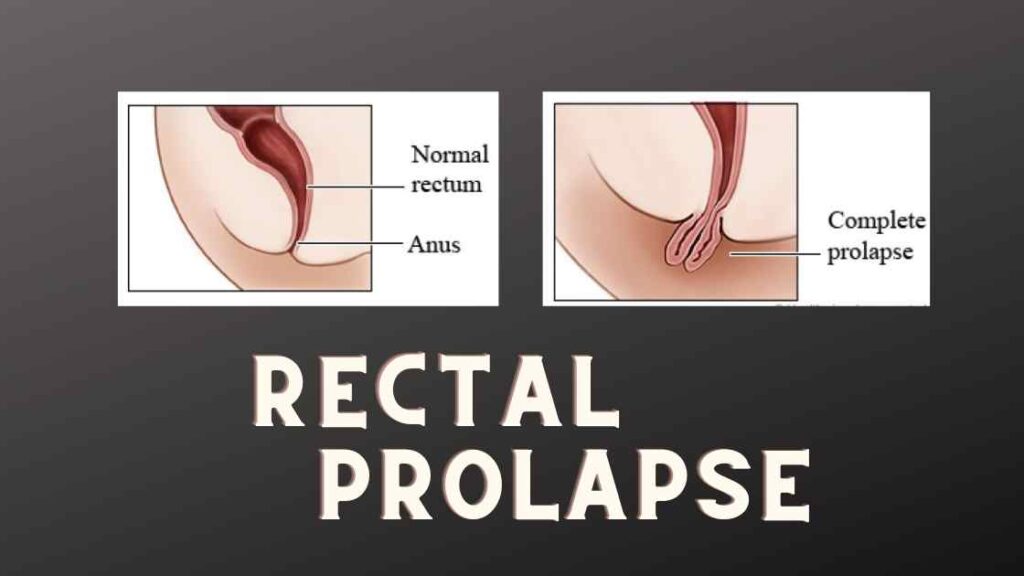At least 9 per cent of people in the US have an eating disorder in their lifetime. It is believed due to eating disorders patients experience loss of pelvic floor muscle and their anal opening gets but it’s much more than that. Here we will discuss all about what is anorexia butthole.
Anorexia Nervosa is one such condition where people make themselves extremely starved because of their intense fear of gaining weight. These eating disorders like anorexia nervosa affect many organs and if they are left as it is then they can cause severe life-threatening complications.
People with eating disorders sometimes develop rectal prolapse as a complication of their disease.
Read here about What do anorexics eat.
Table of Contents
What is Anorexia butthole?
Anorexia butthole is a medical problem which is also called as “rectal prolapse”. We are discussing rectal prolapse in eating disorders here. It is a severe condition that has been getting attention globally recently.
Although it is called Anorexia butthole is commonly by many people and it does affect one’s body image and have distorted thoughts and feelings about their body image. It may lead to risky behaviours.
What is rectal prolapse?
Slipping of rectal muscle through the anal opening is called rectal prolapse. It’s quite painful for the patients as they cannot sit for long in one place because of this problem, even lying down is not helpful in certain cases.
Who develops Anorexia butthole?
Rectal prolapse is not a common feature of eating disorders however sometimes patients suffering from anorexia nervosa and bulimia nervosa suffer from irritable bowel syndrome, chronic constipation and laxative abuse.
This condition predominates the female population the most and the ratio of male to female is 6:1
Predisposing factors for rectal prolapse
- Obstetric trauma
- History of pelvic surgery
Reasons why persons with eating problems experience rectal prolapse
1. Chronic constipation
This occurs due to
– Low caloric
– Poor diet
– Inadequate fibre diet
– Dehydration
2. Laxative abuse
Patients believe that laxatives help to remove excess calories in food and help them get thin. When the reality is that 88 to 90 per cent of of calories are already ingested because laxatives have very little effect on the small intestine where caloric absorption primarily occurs.
3. Anticholinergic effects
Some medicines have anticholinergic effects which can lead to rectal prolapse.
4. Increased intraabdominal pressure
The constant strain to have bowel movements or lose calories through vomiting also causes the mechanism of prolapse.
5. Excessive exercising
Sometimes even excessive exercises of the lower abdomen and abdomen may lead to strain on the muscles in the surrounding areas leading to rectal prolapse.
6. Highly frequent toilet ritual
intrusive thoughts or obsessive thoughts that stool inside the bowel will remain indefinitely thoughts of intense disgust and how dirty the body was and how food was contaminating the bowel. Spending time in the toilet relieves the intense anxiety by trying to empty the bowel of all the dirt by ritualistically emptying the belly by contracting muscles as hard as possible.
Often the patients suffering engage in “rectal purging” which is intrarectal digital dilatation to help relieve constipation or for the compulsive behaviour related to emptiness of the bowel.
Most of the time, patients will regularly check to see if the bowel has been fully emptied by voluntarily inserting their finger. The purpose is to relieve the intense anxiety caused by obsessive thoughts that the individual will get fat or dirty if the bowel has not been emptied or vacated of stools. These compulsive behaviours lead to rectum prolapse.
A compulsive body-checking ritual is a characteristic of an eating disorder. The prevalence of OCD symptoms in eating disorders is very high in comparison to the general population.
Treatment of rectal prolapse
Contributing factors for rectal prolapse like constipation, diarrhoea or laxative abuse should be addressed first.
Surgery correction of rectal prolapse is divided into two categories
- Abdominal Procedure
- Perineal Procedure
If there is a presence of irreducible prolapse with gangrene or the rupture of the rectal mucosa then it is of utmost importance to obtain a prompt surgical consultation with a general surgeon or a colorectal surgeon immediately.

Contradiction for surgical correction of patients is based on
- comorbidities
- Age
- Being able to endure surgery
The dangers associated with surgically treating rectal prolapse
- Large amounts of Blood loss
- Bowel obstruction
- Damage to surrounding organs and nerves
- Anal opening sometimes gets narrowed up
- The chances of infection are huge
- Formation of fistula (an abnormal connection between Vagina and rectum)
- Recurrence of rectal prolapse
- Worsening of constipation
Conclusion about Anorexia Butthole
Patients with eating disorders think of food as something that would cause them weight gain and hence fear it also at the same time desire it for its soothing effect on them. It is very important to recognize the association of anorexic patients and the availability of effective surgical therapy.
Many patients suffering from this condition of rectal prolapse do not open up due to shame angst or anxiety. You are not alone, Remember it’s your body it will be size “x” for some years size “y “ few years or size “z” for some time, it will change and that’s ok. Help is always available so one should not lose hope.
Sources
Rectal Prolapse in patients
Rectal prolapse in eating disorders
Disclaimer
The article content, ” Anorexia Butthole” has been developed by third-party medical content writers and experts. The information mentioned in the article is only for educational purposes; therefore, it is requested to consult a doctor/ physician before diagnosing and deciding on the treatment plan.
Healthoplane, its Licensors, and any third-party content providers do not guarantee any content’s accuracy, completeness, or usefulness. Furthermore, neither Healthoplane nor its Licensors endorse or are responsible for the accuracy and reliability of any opinion, advice, or statement made on this article or any of the Sites or Services.
We take no responsibility for your exposure to third-party content on the Sites or the Services. Healthoplane and its Licensors do not assume, and expressly disclaim, any obligation to obtain and include any information other than that provided by its third-party sources. It should be understood that we do not advocate the use of any product or procedure described in the Sites or through the Services, nor are we responsible for misuse of a product or procedure due to typographical error.
Consent
By using our website, you hereby consent to our disclaimer and agree to its terms.
Dr Amit Sharma is a Doctor and writer with a particular interest in mental health. He helps individuals by combining practical advice with emotional support.
